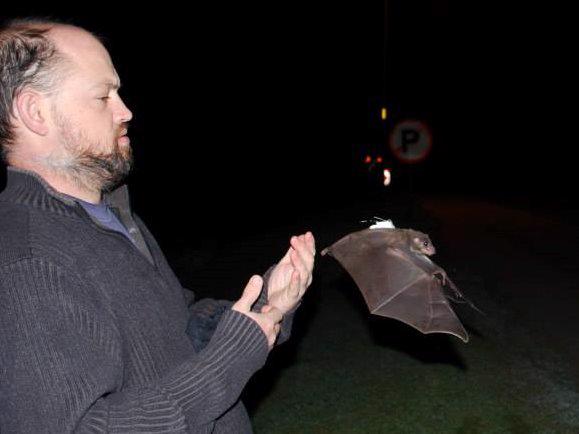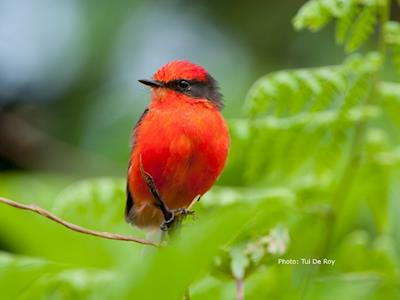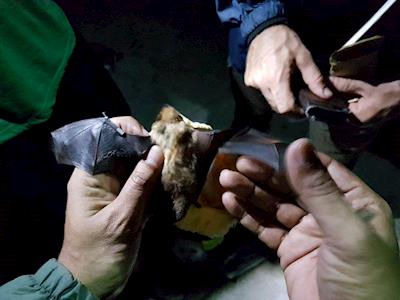Galapagos bats need help so we are sending a New Zealand expert to help the National Park research and conserve them.
Galapagos wants to conserve it's bats but needs a bat expert, Josh is ready to pitch in, but needs money for flights. Help us get him there.
Nationwide
The Galapagos Islands are one of the world's greatest biological treasures. But those treasures aren't safe. Rats, cats, fire ants, mosquito-borne diseases and other problems are threatening many of the species that are only found there. The Galapagos National Park is battling to push back the invaders and help species recover, but has limited expertise in many areas. New Zealand experts have already helped with goat and rat eradications, bird recovery work, quarantine system design and other projects.
New Zealand is a world leader in island eradications, species recovery and park management. Our experts in these areas are keen to help the Galapagos. Friends of Galapagos NZ was set up to aid the Galapagos authorities in finding the right experts, help with covering the costs of New Zealand volunteers, and support the hosting of Galapagos managers who come to New Zealand for training and inspiration.
We have built a strong relationship with the Park, and have a lot of exciting projects on the books. But without more funds, we will have to abandon a number of those projects.
Right now we are sending Josh Guilbert a well known New Zealand bat expert, who has studied bats in NZ and elsewhere, to the Galapagos to work with the Park in developing a bat conservation plan. Josh will also train rangers and volunteers in how to catch and monitor bats. Josh in collaboration with the Park will be focusing on the endemic little red bat but will also catch and band the native hoary bat as they occur in the same area.
Like a lot of the wildlife, no-one knows how the bats are getting on, and specifically whether they are carrying diseases that would be a concern. The Park is keen to start work on bats, but has no expertise. Josh, from Auckland University, offered to go over as a volunteer to work with the Park, but needed help to cover his costs. The Park will provide local accommodation and transport. FOGNZ will pay for the airfare to get him there, and a box of bat bands to allow bats to be tracked and monitored. New Zealand experts have lent the other equipment that is needed to detect, catch and handle these elusive creatures. One of our supporters has lent us the funds to allow him to go this year, but we now need to raise the $5700 it will cost.
New Zealand has world-leading expertise in the management of biodiversity on islands, and our experts are willing to donate their time to saving Galapagos wildlife. But we need other New Zealanders to help us find the money for travel and equipment so our experts can get to the Galapagos and do their work. Every donation will help save a species. We are a registered charity, so any donation $5 and over is tax deductible.
Patrons that donate over $50 can nominate a name (in good taste) to be added to the bat naming list. As the number of bats caught may be limited we will put the names in order by the size of donation. If your name is given to a bat, you will get a digital photo of your bat and band number, along with updates whenever we get new data associated with it. To nominate a name, just send an email to info@galapagos.org.nz with a copy of your donation receipt.
About us
Friends of Galapagos New Zealand Incorporated (FOGNZ) is a not for profit organisation set up to enable people from New Zealand and elsewhere to play a part in the conservation of the Galapagos Islands.
Our mission is to help with the conservation of the natural environment of the Galapagos Islands
Use of funds
Every cent donated will go to pay the $5,000 it will cost to get Josh to the Galapagos, and the $700 needed to pay for the bat bands for bat monitoring work.
Other page links
Latest update
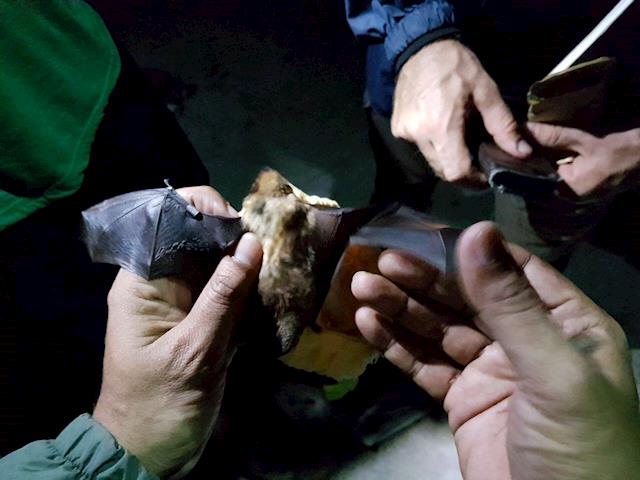
Bat in the Hand 24 August 2017
Josh reports on successful bat catch
"The bats kept flying just past the net and it looked like they were too smart for us. BUT at the last minute, a quick flick of the wrist by one of the Rangers led to the first bat caught in around 20 years! So, introducing Bat T182, AKA “Snuffles the destroyer”. Thanks, Leah and Alana for the donation that led to this unique name! If you want to add a name to list click on the link below and donate $50 or more."
The Park wants me to come back again in November/December which is the dry season when insect numbers will be up and hopefully the bat numbers too. While I’m away, the Rangers will be doing the challenging work of finding bat capture locations. I left my bat detector with them to help and gave some general advice on how to proceed. Next trip we will focus on learning how to take genetic samples and disease screening. So, if you want to support the project further we need all the help we can get.
Check out the gallery for some more great photos of the bat catch.
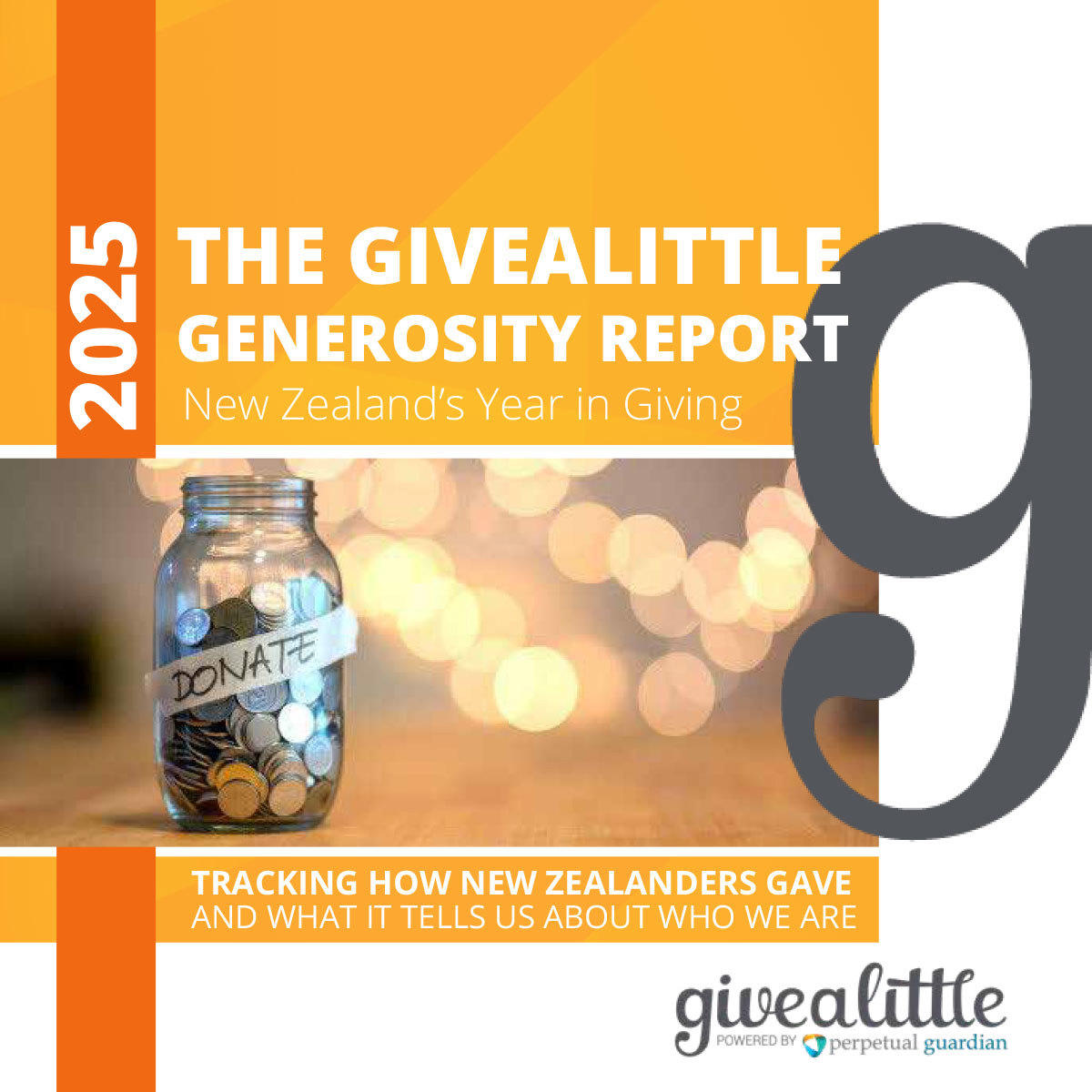
Latest donations





Who's involved?
Our other pages
Page Q&A
Ask a question hereAny concerns?
Report this pageThank the donor
Your message will be displayed on the page and emailed to the donor.
Your new message will also be emailed to the donor.
Saving a blank entry will delete the current comment.

